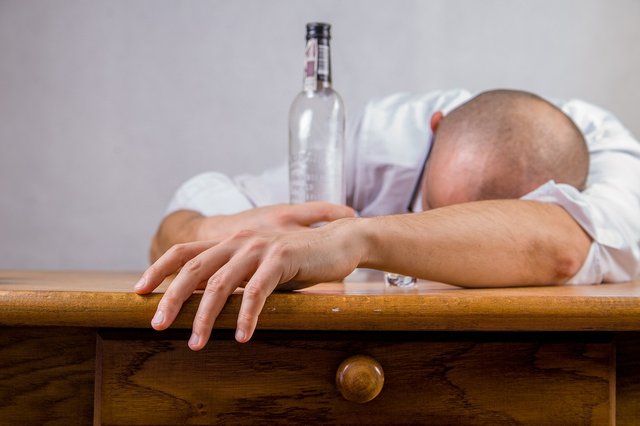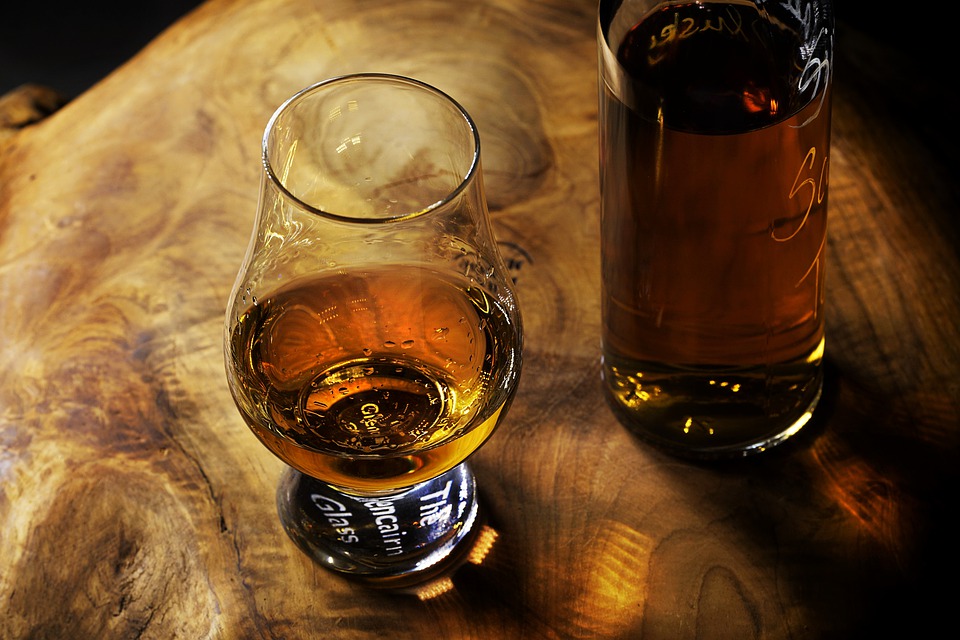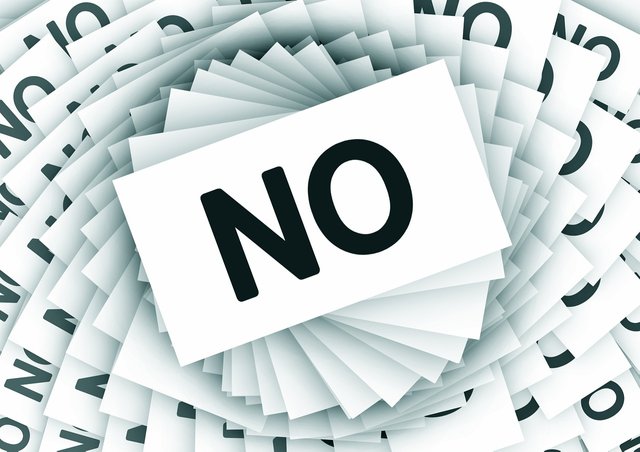Have you ever wondered, why you feel so miserable after drinking too much and how to prevent it?
Here is the answer.
The Problem
Since we are, of course, all responsible adults, who would never have one or two (three?) drinks too much, we never have to deal with the annoying side effects of alcohol intake – most prominently: a hangover.
But for the lesser blessed among us, the irresponsible, the inner children, the binge-drinking victims of society, this can be a hard time to handle. Therefore, I deem it a task worth taking, to descend to my fellow human beings from the top of my mountain of wisdom, and to enlighten you with the knowledge for a better life.
Or just be it, to prevent others from having such a shitty “day after” like a guy, I happen to know quite well, had a few days ago. Ahem.
Fuck my life
So, last night was longer than intended and after you woke up, you are feeling like a train recently run you over. This is the way, your brain tells you, the last few drinks were not the best idea you ever had – although it might have looked like it back then.
There are a couple of symptoms to characterize the alcohol related hangover (Wiese et al., 2000) (1):
- Headache
- Nausea
- Diarrhoea
- Tremulousness
- Fatigue, including decreased occupational, cognitive or visual-spatial skill performance
Why would anybody want to experience those kinds of things on purpose?
Probably nobody, but as our brain is more focused onto the pleasure right in front of us (the party, the relaxed feelings alcohol can induce) and does not care so much about the consequences (or costs), we ignore the thoughts about the morning after and keep on drinking.
Usually we swear “never again”, to prevent us from experiencing this kind of suffering in the future – but this mostly holds only true until the next bar tour. Our brain works in curious ways.
According to Wiese et al. (2000) at least two of these symptoms have to be experienced after the consumption and full metabolism of alcohol, to match their definition of a hangover. They add, that sufficient severity is disrupting responsibility and the performance of daily tasks, but this claim is criticized by Stephens et al. (2008) (2) due to methodological shortcomings.
But why?
The available research on hangover is far from finished. There are multiple hypotheses about the possible causes and mechanisms behind this concept. Therefore, I am going to highlight the most important ideas, which are consistent in the available literature, but going to point out criticism, if necessary.
Hangover has a lot do to with the pathophysiological (3) mechanisms inside your body.
Patho-what?
- Pathology – observed conditions described during disease
- Physiology – describes mechanisms operating inside the organism
There are several changes happening to your body, which as well follow and outlast acute alchohol intoxication.
Wiese et al. (2000) are speaking of increased levels of acetaldehyde (produced by the liver enzyme alcohol dehydrogenase during the partial oxidation of ethanol), different kinds of hormonal alterations because of deregulated cytokine (category of proteins needed for cell signalling) pathways and problems with glucose availability mediated by insulin.
Especially the impact of acetaldehyde is not as clear as it seems. Although Wikipedia claims it as one of the most dominant factors (4), Prat et al. (2009) (5) criticized this approach in pointing out, that the related studies required their participants to obtain so high amounts of acetaldehyde, which are not usual in acute alcohol consumption. Furthermore, an excess of acetaldehyde seems to contribute to hangover symptoms, but during the state of hangover no traces of acetaldehyde can be found in the blood system. There is still more research needed, to understand this correlation in detail.
In addition, Calder (1997) (6) pointed out several mechanisms associated with dehydration, metabolic acidosis, increased cardiac output, vasodilation (widening of blood vessels) and disturbed prostaglandin synthesis. Furthermore, insufficient eating and sleep deprivation can be another side effects of alcohol intoxication (Verster et al., 2003) (7).
It seems to be evident, that so-called congeners, the complex organic molecules, which alcoholic beverages are containing, are playing an important role when it comes to hangover effects.
Congeners (e.g. methanol) are metabolized to substances like formaldehyde and formic acid – which are both quite detrimental to your overall well-being.
And I have bad news for all the people, who are enjoying dark spirits like whisky or rum: it appears, that the concentration of congeners is especially high in those kinds of spirits, when compared to clear ones such as vodka or gin (Calder, 1997).
But don’t let yourself fool you into thinking, that drinking dozens of gin shots will not result in a hangover – trust me, I know, what I’m talking about.
Keep your BALance
It is quite interesting to notice, that all of these effects are only happening, after your blood alcohol level (BAL) has returned to zero. That is an important distinction to make, because only then you are able to differentiate between real hangover effects and the ones caused by acute alcohol intoxication (Stephens et al., 2008).
So, in case, you ever wondered, why you still feel like shit, even a day after you had your last drink – this is the reason. Your body needs time to deal with the high amounts of toxins you just put into it, thus even your BAL is at zero, you will still feel the impact of your night out.
The cure
Alright, you now have a basic understanding of the biological mechanisms behind your awful feelings after partying hard. And since science is all about cool and useful stuff, there has to be an effective way to treat hangover, right? RIGHT?!
I am deeply sorry to disappoint you, but until date no treatment was able to prove itself under scientific conditions.
If you happen to find yourself in this uncomfortable state of being, then you will not have much choice but to endure it. As Pittler et al. (2005) (8) stated, there is no compelling evidence which suggests, that any conventional or complementary treatment is effective for preventing or curing alcohol hangover. You might be able to lessen some symptoms like headaches with increased water intake or painkillers, but in general we are still far away, to give you a satisfying “morning after”.
Although this may come to you as a frustrating surprise, you can see it as something good as well:
If you drink too much alcohol, you will most probably suffer – this holds true almost every time. So, the best way of preventing this, is to act a bit more responsible and know your limits.
I have worked many years as a bartender in various kinds of clubs and bars – trust me, being responsible is more fun for all of us in the end.
And your body will be even more grateful the next morning.
Feel always free to discuss my ideas and share your own thoughts about the things I’m writing about. Nobody is omniscient and if we all walk away a bit smarter than before, we’ll have achieved a lot.
Thanks for reading and stay safe.
Ego

Make sure, to check out #steemstem for more science related content.
References
(1) Wiese JG, Shlipak MG, Browner WS. The Alcohol Hangover. Ann Intern Med. 2000; 132:897–902. doi: 10.7326/0003-4819-132-11-200006060-00008
(2) Richard Stephens, Jonathan Ling, Thomas M. Heffernan, Nick Heather, Kate Jones; Review: A review of the literature on the cognitive effects of alcohol hangover , Alcohol and Alcoholism, Volume 43, Issue 2, 1 March 2008, Pages 163–170, https://doi.org/10.1093/alcalc/agm160
(3) https://en.wikipedia.org/wiki/Pathophysiology
(4) https://en.wikipedia.org/wiki/Acetaldehyde
(5) Gemma Prat, Ana Adan, Miquel Sa´nchez-Turet. Alcohol hangover: a critical review of explanatory factors. human psychopharmacology. Hum. Psychopharmacol Clin Exp 2009; 24: 259–267. DOI: 10.1002/hup.1023
(6) Calder, I. Editorial: Hangovers, British Medical Journal, 1997, vol. 314, pg. 2
(7) Verster, J. C., van Duin, D., Volkerts, E. R., Alcohol hangover effects on memory functioning and vigilance performance after an evening of binge drinking, Neuropsychopharmacology, 2003, vol. 28 (pg. 740-746)
(8) Pittler Max H, Verster Joris C, Ernst Edzard. Interventions for preventing or treating alcohol hangover: systematic review of randomised controlled trials BMJ 2005; 331 :1515




Being A SteemStem Member
Downvoting a post can decrease pending rewards and make it less visible. Common reasons:
Submit
I knew about the glucose depletion thing that results after the alcohol use, But learned some new things here.. It was nice, well composed post.
😊
Downvoting a post can decrease pending rewards and make it less visible. Common reasons:
Submit
Thanks a lot. Glad to see, I was able to provide some new insights :)
Downvoting a post can decrease pending rewards and make it less visible. Common reasons:
Submit
Wow. This is well detailed. I couldn't have imagined that "hangover" has this much biological analysis. Thanks for being elaborate.
Now, I can say this to John, he wouldn't stop asking the "why" he's still tired days after his "enjoyment"
Thanks once again.
Downvoting a post can decrease pending rewards and make it less visible. Common reasons:
Submit
Haha :D
Thank you!
Since "this friend of mine" had to struggle with hangover effects for quite some time, it was needed to provide an explanation :)
Downvoting a post can decrease pending rewards and make it less visible. Common reasons:
Submit
Nice post
Downvoting a post can decrease pending rewards and make it less visible. Common reasons:
Submit
Respekt! 😊
Downvoting a post can decrease pending rewards and make it less visible. Common reasons:
Submit
:)
Downvoting a post can decrease pending rewards and make it less visible. Common reasons:
Submit
thanks for sharing these informations with us, after reading this i thank god that i don't drink :)
Downvoting a post can decrease pending rewards and make it less visible. Common reasons:
Submit
You are welcome :)
I do think, you made the smarter choice with refraining from drinking at all. But for the ones who do, they are maybe a bit more responsible after reading things :)
Downvoting a post can decrease pending rewards and make it less visible. Common reasons:
Submit